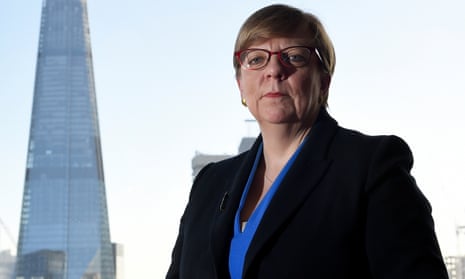The number of rape cases being charged by the Crown Prosecution Service has plummeted to the lowest in a decade, despite an increase in the number of incidents reported to police, figures have revealed.
The CPS charged 849 fewer defendants in 2017-18 than the previous year – a 23.1% fall –according to the service’s annual Violence Against Women and Girls (VAWG) report.
The report’s publication comes after the Guardian revealed that prosecutors in England and Wales have been quietly urged to take a more risk-averse approach in rape cases to help stem widespread criticism of the service’s low conviction rates.
The controversial advice to take a proportion of “weak cases out of the system” has been given to specialist rape prosecutors in training seminars, which some staff and campaigners fear will severely limit access to justice for rape victims.
Q&ATell us: have you been affected by the issues in this story?
Show
Have you had an experience related to this story that you would like to discuss with our journalists?
You can do so by filling in this encrypted form – anonymously if you wish. Your responses will only be seen by the Guardian and we’ll be in touch if we are considering your response as part of our reporting. You can read terms of service here.
The figures have sparked calls for an independent review by a UK-wide coalition of women’s organisations. “This is a collapse in rape justice and we need to know why this has happened and what those in charge of the justice system are going to do about it,” said Sarah Green, co-director of the End Violence Against Women coalition.
Last year the CPS charged 2,822 defendants, compared with 3,621 in 2013-14, yet the total number of rapes reported has almost doubled since 2013-14. Last year saw police-recorded rape increase by 15% (to 41,186 offences) compared with the previous year, according to police recorded crime figures from the Home Office.
The fall in charging is related to a drop in cases being put forward by the police. Police referred 9.1% (599) fewer rape cases 2017-18, which contributed to the fall in the volume of suspects charged.
Sources within the police said the drop in referrals was at least in part influenced by a change in CPS direction, and that officers were increasingly frustrated at the demands being placed on police by the CPS, particularly at a late stage in prosecutions.
The figures show the charging rate – the proportion of cases referred by police that are charged by prosecutors – fell by 8.6 percentage points to 46.9%. This is the lowest recorded rate since 2010-11, when it was 41.7%.
The number of cases “administratively finalised” – when cases are dropped by police at an early stage following consultation with the CPS – jumped by 72% to an all-time high, with more than a fifth of cases falling into this category last year.
Ann Coffey MP, chair of the all party parliamentary group for runaway children and adults, said the figures were alarming and called for an urgent review into the criminal justice system’s treatment of rape.
“There is already a massive underreporting of rape. We are in danger of this going from bad to worse,” she said.
In a series of pieces exposing a crisis around rape justice this week, the Guardian revealed that less than a third of prosecutions brought against young men result in a conviction, with 18-24-year-olds consistently less likely to be found guilty than older men at trial.
Coffey added: “A perfect storm is developing where juries are reluctant to convict young men charged with date rape; the CPS are therefore reluctant to prosecute and the police are therefore reluctant to refer. This will lead to even fewer women daring to come forward to report.
“To be fit for purpose, the justice system must be there for everyone, but at the moment it appears that many young women are being denied justice.”
Overall, the data shows a decrease in the number of all VAWG cases. Referrals from the police have dropped by 0.7%, the number of completed prosecutions has reduced by 5.9% and the number of convictions by 4.9%. The conviction rate for rape cases rose slightly, by 0.7 percentage points. The CPS said prosecutions for stalking and modern slavery offences have seen significant increases.
The director of public prosecutions, Alison Saunders, said VAWG cases, in particular rape and serious sexual offences, were complex and the organisation had carried out extensive work to tackle the challenges.
“Our priority is to continue to work with the police, to bring strong cases and respond to challenges such as the substantial increase in digital evidence that is now a common feature of these cases,” she said. “As ever, prosecutors must make their decisions after testing whether the evidence provides a realistic prospect of conviction, and that it is in the public interest.”
Katie Russell, a spokeswoman for Rape Crisis, said the figures showed a “significant reversal” of the upward trend in prosecuting rape and sexual offences.
“This shift is both surprising and deeply troubling given that unprecedented and increasing numbers of victims,” she said. “As victims and survivors continue to be encouraged and celebrated for speaking out, it’s clear criminal justice outcomes are not only failing to keep pace but diminishing.”
According to Rape Crisis, in the same time period covered by the latest CPS figures the number of clients accessing their services rose by 17%, while the number of support sessions given to victims increased by 44%.
